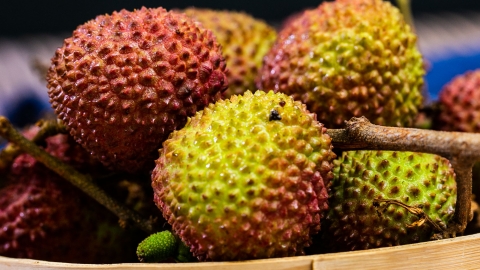What fruits should not be consumed with lychee during pregnancy?
There may be no absolute restrictions on fruit consumption, but pregnant women should be particularly cautious with their diet. Lychee is inherently warming in nature and generally should not be consumed together with other warming fruits such as durian, longan, mango, pineapple, and hawthorn. Detailed explanations are as follows:

1. Lychee combined with durian: Both are warming fruits. Consuming them together may intensify internal heat, causing expectant mothers to experience symptoms of excessive internal heat, such as dry mouth, thirst, and constipation. It may also increase physical strain and affect comfort during pregnancy.
2. Lychee combined with longan: Longan is also warming in nature and has blood-activating properties. When consumed with lychee, the warming effects may accumulate, potentially stimulating the uterus and increasing the risk of discomfort, particularly during early pregnancy.
3. Lychee combined with mango: Mango is prone to cause allergic reactions, and lychee may also cause discomfort in some individuals. Combining the two may increase the likelihood of allergic reactions. If a pregnant woman experiences an allergic reaction, it may affect both her and the fetus's health.
4. Lychee combined with pineapple: Some components in pineapple may irritate the oral and gastrointestinal mucosa. When consumed with lychee, the irritation may be enhanced, making pregnant women prone to gastrointestinal discomfort, such as abdominal pain and diarrhea.
5. Lychee combined with hawthorn: Hawthorn can promote uterine contractions. Although the combination with lychee may taste pleasantly sweet and sour, it may increase the burden on the uterus. Consumption by pregnant women, especially during early pregnancy, may lead to adverse effects.
Pregnant women should choose mild-natured fruits such as apples, pears, and strawberries, and avoid the above combinations with lychee.







